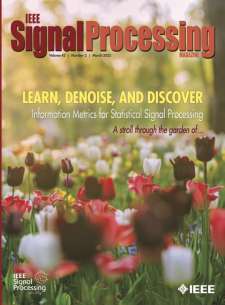Proper Definitions of Dirichlet Conditions and Convergence of Fourier Representations
Top Reasons to Join SPS Today!
1. IEEE Signal Processing Magazine
2. Signal Processing Digital Library*
3. Inside Signal Processing Newsletter
4. SPS Resource Center
5. Career advancement & recognition
6. Discounts on conferences and publications
7. Professional networking
8. Communities for students, young professionals, and women
9. Volunteer opportunities
10. Coming soon! PDH/CEU credits
Click here to learn more.
Proper Definitions of Dirichlet Conditions and Convergence of Fourier Representations
Fourier theory is the backbone of signal processing (SP) and communication engineering. It has been widely used in almost all branches of science and engineering in numerous applications since its inception. However, Fourier representations such as Fourier series (FS) and Fourier transform (FT) may not exist for some signals that fail to fulfill a predefined set of Dirichlet conditions (DCs). We note a subtle gap in explaining these conditions as available in popular SP literature. For example, original DCs require a signal to have bounded variations (BVs) over one time period for the convergence of FS, where there can be, at most, a countably infinite number of maxima and minima and, at most, a countably infinite number of discontinuities of finite magnitude. However, a large body of the literature replaces this statement with the requirements of a finite number of maxima and minima over one time period, and a finite number of finite discontinuities over one time period. Due to the latter, some signals fulfilling the original DCs are incorrectly perceived as not having convergent FS (CFS) representation. A similar problem holds in the description of DCs for the FT. Likewise, although it is easy to relate the first DC with the finite value of FS or FT coefficients, the relevance of second and third DCs, as specified in SP literature, is hard to assimilate.
These concepts are taught worldwide in the standard course of “Signals and Systems” to second-year undergraduate students of electrical, electronics, communication, computer, and other engineering disciplines. In this “Lecture Notes” column, we attempt to provide the required clarifications and a lucid but precise description and explanation of the DCs. Some other conditions that guarantee convergent Fourier representations are also discussed. We support the text with many suitable examples. The presented work will undoubtedly help teach these concepts with better clarity to the young SP audience.
Fourier representations such as FS and FT provide an alternative representation of a time-domain signal in terms of its frequency constituents. These representations are helpful in the analysis and processing of signals. They form essential tools that are utilized by the scientific community working in the areas of SP, communication engineering, and on an umpteen number of related applications. The DCs are used for ensuring the existence of convergent Fourier representations. To the best of our knowledge, none of the textbooks on signals and systems and other widely used manuscripts and books [1], [2], [3], [4], [5], [6], [7] specify these conditions correctly in the context of Fourier representations. Often, textbooks provide examples of signals that fail DCs of “a finite number of maxima and minima, and a finite number of finite discontinuities.” As these textbooks refer to their restricted definition of DCs, many signals that fulfill the original DCs can be incorrectly inferred as the failure cases.
SPS Social Media
- IEEE SPS Facebook Page https://www.facebook.com/ieeeSPS
- IEEE SPS X Page https://x.com/IEEEsps
- IEEE SPS Instagram Page https://www.instagram.com/ieeesps/?hl=en
- IEEE SPS LinkedIn Page https://www.linkedin.com/company/ieeesps/
- IEEE SPS YouTube Channel https://www.youtube.com/ieeeSPS














